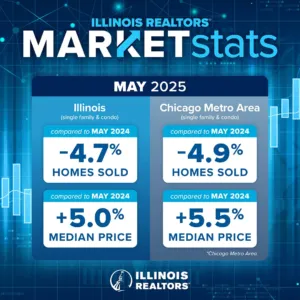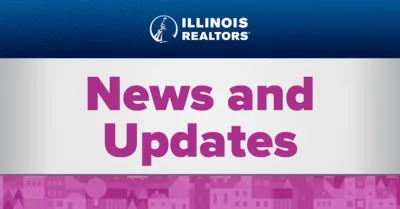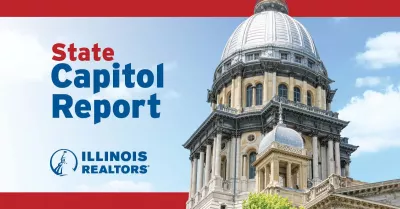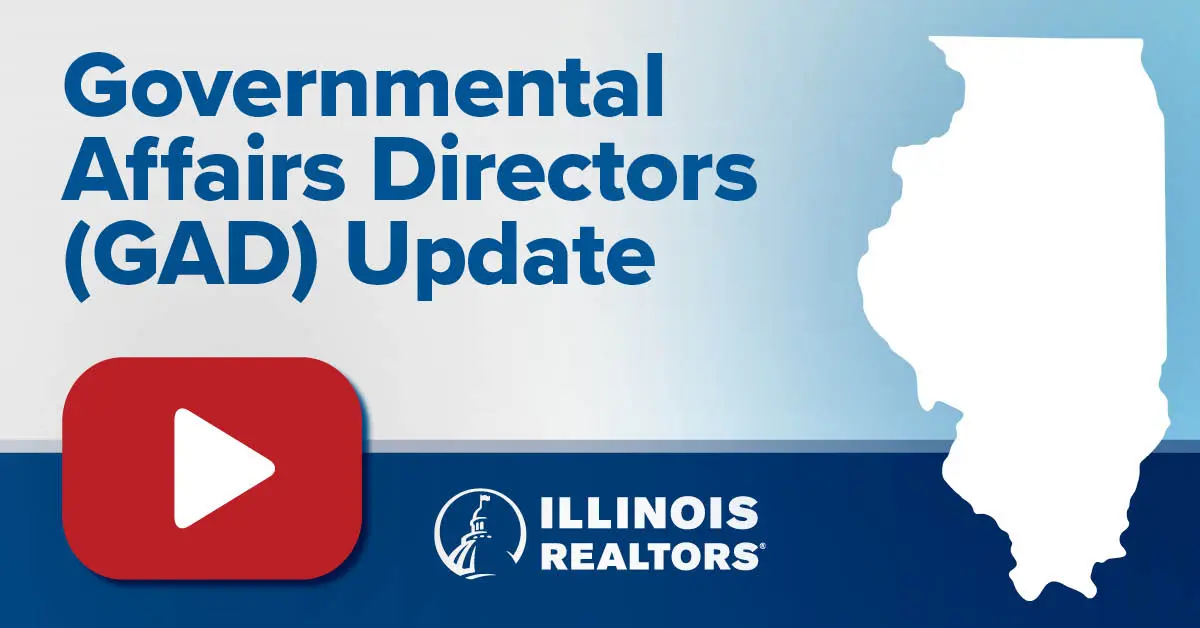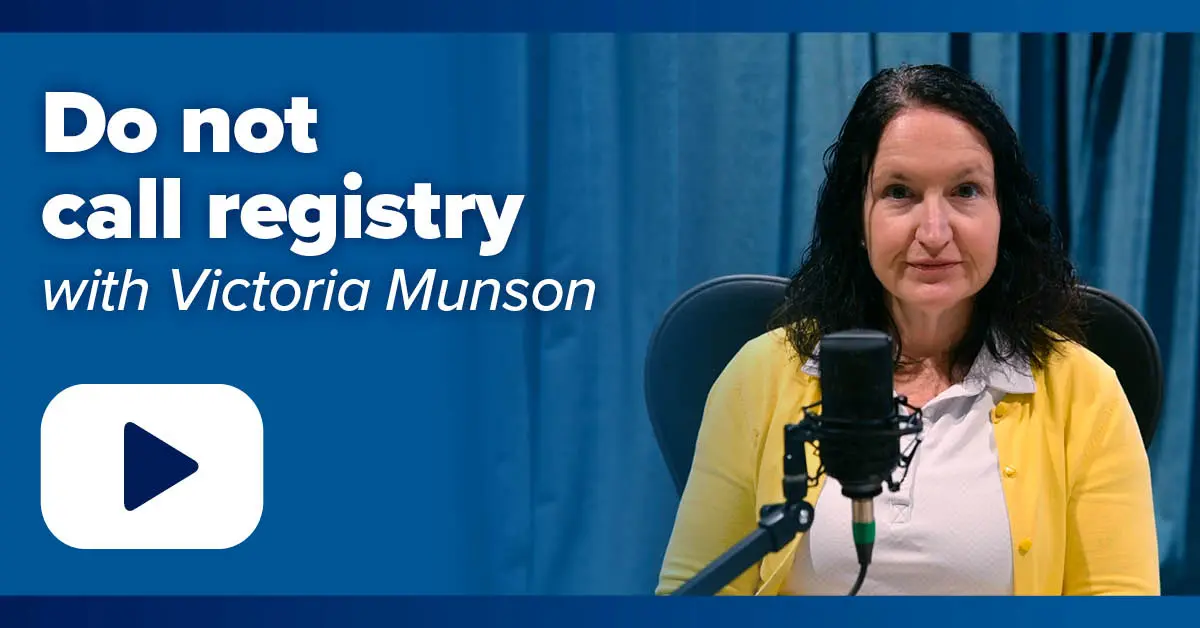Chicago Mayor Lori Lightfoot has proposed a real estate Transfer Tax which will hit many commercial and residential investment properties hard.
The proposal, as outlined in a speech several weeks ago, would decrease Transfer Taxes paid at closing on properties valued at less than $500,000, but it would significantly boost the taxes on properties valued at more than $1 million.
Greg St. Aubin, senior vice president for governmental affairs for Illinois REALTORS® discusses the tax proposal which could come up in the Illinois General Assembly’s veto session which is back in session the week of Nov. 11.
St. Aubin, a longtime lobbyist for the association, said the Transfer Tax places an unfair burden on property owners who are already saddled with high property taxes. He notes that if a burdensome Transfer Tax passes and is signed into law, the ripple effects could be felt throughout the state, not just in Chicago.
Transcript is below:
Jon Broadbooks: Hello and welcome to the Illinois REALTORS® podcast. I’m Jon Broadbooks and today we’re going to be talking about transfer taxes. We are, of course, in the middle of the General Assembly’s veto session this month, and although the legislation has not been filed yet, it’s highly likely that lawmakers will be asked to consider a sweeping plan to boost transfer taxes on property transactions in the city of Chicago. The plan, which is pushed by Chicago mayor Lori Lightfoot, could significantly boost the cost of buying and selling property in the city.
Jon Broadbooks: Here, today, to talk about the implications for the state and really for the real estate industry is Greg St. Aubin, Senior Vice President for Government Affairs with Illinois REALTORS®. Greg has nearly three decades of experience in private property rights issues as the association’s chief state house lobbyist, and there’s no one better to explain why this tax change matters to everyone, not just REALTORS®. Welcome Greg.
Greg St. Aubin: Thanks Jon. Great to be here with you.
Jon Broadbooks: So Greg, many people may not be familiar with how transfer taxes work. Can you briefly tell our listeners what a transfer tax is and who pays a transfer tax?
Greg St. Aubin: Well, Jon, as the name implies, and I’m sure our members are well familiar with this but many consumers may not be, the real estate transfer tax is a tax on the so-called privilege of transferring title to real estate, both commercial and residential. Let me quickly go through … it’s a little complicated, but let me quickly summarize it. The state has a transfer tax of a dollar per thousand and all counties in Illinois have a tax of 50 cents per thousand. These taxes are, typically, paid by the seller at the closing table. In addition, there are many home rule units of local government that also impose a transfer tax, which can be imposed on either the buyer or seller.
Greg St. Aubin: Since we’re talking about, primarily, Chicago today between the city of Chicago and Cook County, and then the state transfer tax the bottom line is, in Chicago, the transfer tax for the state, county, and city now totals $12 per thousand, with 7.50 of that paid by the buyer at closing and the rest paid by the seller.
Jon Broadbooks: So Chicago faces some significant budget shortfalls. We’ve all read a lot about that. Mayor Lightfoot addressed using a transfer tax as part of the solution to filling the budget gap. What exactly is she asking for?
Greg St. Aubin: Unfortunately, Chicago is, as many local governments are, facing … and as is the state, for that matter, a budget deficit. And in Chicago’s case it’s a budget deficit of over $800 million. The mayor is seeking to make the local, the Chicago real estate transfer tax, a graduated tax that would change the rate of the tax based on the value of the property being transferred on a sliding scale. And she’s hoping to raise $50 million from that initiative, though some people think that’s an optimistic figure but regardless, as you said, we haven’t seen any specific proposal yet. But from what we’ve heard about her proposal, she’s being very politically clever about the way she’s pursuing this because she’s proposing to actually decrease the tax on real estate transfers up to $500,000, then significantly ramp up the tax at various thresholds above that. So it’s going to be pitched as, “Hey, we’re giving a break to the little guys and we’re just hitting the wealthy.”
Greg St. Aubin: And, again, we haven’t seen a specific proposal, but from what we’ve heard transfers above $10 million would receive, from what we’ve seen, a 137% increase above $50 million, a 230% increase, and so on up the transaction value ladder.
Jon Broadbooks: That’s a pretty significant add on to any real estate transaction. 230%?
Greg St. Aubin: Yes.
Jon Broadbooks: Oh wow. So if the mayor wants a transfer tax, how would she go about getting it?
Greg St. Aubin: She can do it in one of two ways. She can either seek state legislation, or she can do a local referendum. Thanks to an initiative proposed by the Illinois REALTORS® in the late ’90s, all local governments home rule units that want to increase their transfer tax have to go to referendum. And this isn’t unusual, the state legislature has done that regarding many types of tax increases. The local governments have to go to the taxpayers to give a reason, and seek approval to do various increases in taxes on real estate of which the transfer tax is one.
Greg St. Aubin: If she comes to the legislature next week, the second week of veto session, she could change that state law, and it would enable her to pass this graduated income … I’m sorry, real estate transfer tax, then be able to with … but it’s going to require a three-fifths vote in the General Assembly. She would be able to enact that in Chicago by January 1. Otherwise, she’s going to have to go to referendum in March in the Chicago spring elections.
Jon Broadbooks: Why is she structuring the transfer tax this way? It seems higher end properties, of course, are going to take a really big hit. You mentioned 230%, depending on the tier that you’re in.
Greg St. Aubin: I think she’s trying to be … I think it’s, frankly, a politically clever way to do this. We’re only increasing the tax on the wealthy, but that’s not true. It may seem to many people out there, and this is how it’s going to be sold, that if you’re transferring a property that’s worth $10 million or more you’re wealthy, but our members know that, and people in business know especially in Chicago, that’s just not true. This is going to affect a lot of mom-and-pop operations, a lot of small businesses, and they’re already out there struggling to make it. And so we’re very concerned about this.
Jon Broadbooks: Commercial property is already taxed at a very high rate in Chicago, I understand. So how is this likely to affect developers’ willingness to buy and sell property there?
Greg St. Aubin: Well, I was talking Jon to a Senate leader, a Democratic Senate leader a couple of weeks ago about this issue. And he said, “Oh, come on Greg. I used to do commercial transactions. Is somebody not going to do a real estate transaction because of the transfer tax?” And I said, “Well, maybe, maybe not,” probably not, but this feels like a pile on to commercial businesses in Chicago. It’s this combined with everything else: high property taxes, commercial property owner, commercial investment, property owners bear an overwhelming part of the property tax burden in Chicago, and it’s going up. Burdensome and costly code and development regulations. For rental property owners, an onerous and costly landlord tenant ordinance, an affordable housing ordinance. An increasing number of local ordinances that impose civil liability on property owners. It’s just on, and on, and on. And I got to tell you, Chicago is a great city. I was born there, I love that city, but it’s getting very difficult for businesses to stay there. And, frankly, we hear that from our members there all the time.
Jon Broadbooks: Now, part of Mayor Lightfoot’s goal here is to fund programs to address homelessness in the city. My understanding is out of all of these tax plans some money will be set aside to work on housing affordability. And I mean, I think we can all acknowledge that housing affordability is an issue, not just in Chicago but, certainly, nationwide. Greg, will a transfer tax meaningfully address housing sustainability and attainability in the city?
Greg St. Aubin: Well, Jon, that was the mayor’s original plan is to dedicate this money to affordable housing or, particularly, the homeless situation in Chicago. But the plain fact is, and I get it, she just needs the money to plug the budget deficit. And she really ran into some problems the first week of veto session, when they were rolling this out there, where even those in the Progressive Democratic Chicago caucus were like, “Oh no, we’re not going to vote for this unless X percent, the overwhelming majority of this money, goes to address the homeless issue,” but that doesn’t help her solve her problem. So she really is stuck in quite a dilemma here.
Jon Broadbooks: We’ve been talking a lot about housing availability in Chicago. And last year, several bills were introduced that would have mandated rent control, which many of our listeners may remember, if passed and signed into law, rent control would set an artificial ceiling on rent increases. So what message do policies such as an increased transfer tax, or possibly even implementation of rent controls send to those who live and invest in the city?
Greg St. Aubin: It’s seen as just more piling on. And, particularly, the point we made on rent control is this is not making … policies like this are not making housing more affordable. They’re making it less affordable. They’re making Chicago a less affordable city. And as I said, it’s just more piling on for our older listeners out there to quote an old Pink Floyd song, “All in all, it’s just another brick in the wall.”
Jon Broadbooks: So if I live downstate, do I care about an issue that really is just sort of a Chicago centric issue? Why should I care about this?
Greg St. Aubin: Well, you should care about it, and here’s why, because we’ve seen this happen again and again. “Well, if Chicago gets it, why don’t I get it? Because my city’s hurting too.” As soon as this happens and local governance have a very strong municipal lobby. There are several groups that all have lobbyists down here that are going to be pursuing this and trying to expand it, if Chicago were to get this. So we’ve all got to work together to make sure that this does not happen.
Greg St. Aubin: And then, I mean the other bad part of it is once they get their foot in the door on this, who’s to say they’re not going to come in and increase the rates even higher? “Well, we need a little bit more money so let’s increase the high end of this. Let’s just tweak it a little bit and increase it a little bit more.”
Jon Broadbooks: So where are we on this proposal? I mean we’re coming up on the second week of the veto session, has a bill been introduced yet? And if not, when might we begin to see one?
Greg St. Aubin: There’s no firm proposal out there. We have seen no language. Yet and part of the challenge we have is they’re only going to be in probably three days the second week, so that’s all they’ve got to pass it. So we might see language at the last minute and have to be prepared to act. And we will keep the members apprised so we can do a call for action, if we have the time to. But it’s also a challenge for her because she’s only got three days left, and that’s going to be difficult for her to put together.
Greg St. Aubin: As I said earlier, if she wants it effective January 1st, which she does, she’s going to need a three-fifths vote. Now, the Democrats have a three-fifths majority in both the House and Senate, but the Republicans have, basically, assured us they’re not going to put any votes on this proposal. So the Democrats would have to do this increase all on their own, and our feeling is they’re really not inclined to do that, especially heading into an election year.
Jon Broadbooks: Many of our listeners may be concerned about the impact this could have on Chicago, and the state as a whole. You mentioned a potential for a call for action as we get more details on this. Is there anything else they can do to make sure law makers understand the ramifications of this policy?
Greg St. Aubin: Well, I know many of our REALTORS® are very active in their communities, and go to different events, and see legislators there. And any time they’ve got an opportunity to do so just to mention our concerns about this would be very helpful. And like I said, we will, as soon as there’s a firm proposal out there that we can actually get our members some facts on, we will do that immediately.
Jon Broadbooks: Yeah, it’s fair to say that this could move very, very quickly, as you say, so it’s important for our members to really pay attention to this because things could change extraordinarily fast.
Jon Broadbooks: We’ve been talking with Greg St. Aubin, Senior Vice President for Governmental Affairs with Illinois REALTORS® about a proposed transfer tax, which would affect Chicago residents. And Greg, thanks so much for being on the podcast today.
Greg St. Aubin: Thank you, Jon.
Jon Broadbooks: If you’re interested in learning more, Illinois REALTORS® has an overview of how transfer taxes work and why they’re a real burden for property owners in the state, and you can find this through our consumer outreach arm, Real Property Alliance at realpropertyalliance.org. Thanks again for listening.

